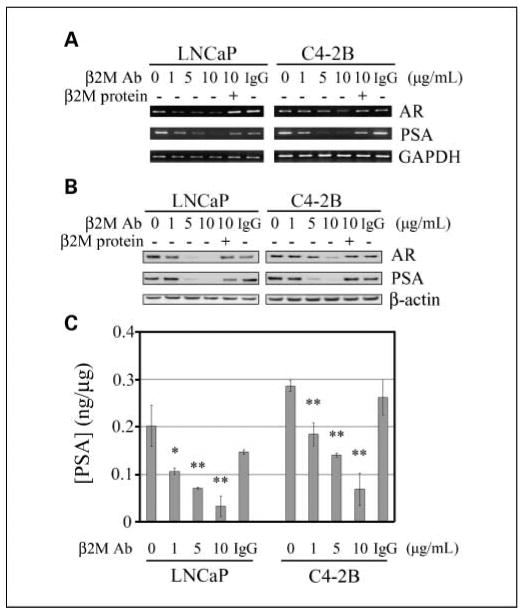Fig. 1.

β2M antibody inhibited AR and PSA mRNA and protein expression in human prostate cancer cells. A, β2M antibody (β2M Ab) decreased AR and PSA mRNA expression in a dose-dependent manner (0-10 μg/mL, 24-h treatment) in both LNCaP (androgen dependent) and C4-2B (androgen independent) prostate cancer cell lines detected by reverse transcription-PCR. The inhibitory effect was restored by the preincubation of the β2M antibody with purified β2M protein. Isotype control IgG (10 μg/mL) did not affect AR and PSA mRNA expression. The expression of glyceraldehyde-3-phosphate dehydrogenase (GAPDH) was used as a loading control. B, β2M antibody inhibited AR and PSA protein expression in a dose-dependent pattern (0-10 μg/mL, 24-h treatment) in LNCaP and C4-2B cells assayed by Western blot. The inhibitory effect was abrogated by the preincubation of β2M antibody with β2M protein. Control IgG (10 μg/mL) did not change AR and PSA protein expression. β-Actin was used as an internal loading control. C, secreted soluble PSA levels were also decreased by the β2M antibody (0-10 μg/mL), but not the control IgG, in a concentration-dependent inhibition in LNCaP and C4-2B cells determined by ELISA. The concentrations of PSA (ng) were normalized by total proteins (μg). *, P < 0.05; **; P < 0.005, significant differences from the β2M-antibody – untreated group. Columns, mean; bars, SD.
